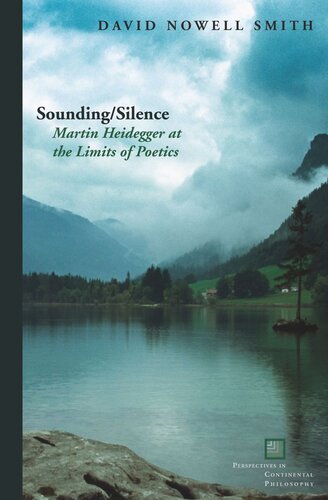

Most ebook files are in PDF format, so you can easily read them using various software such as Foxit Reader or directly on the Google Chrome browser.
Some ebook files are released by publishers in other formats such as .awz, .mobi, .epub, .fb2, etc. You may need to install specific software to read these formats on mobile/PC, such as Calibre.
Please read the tutorial at this link: https://ebookbell.com/faq
We offer FREE conversion to the popular formats you request; however, this may take some time. Therefore, right after payment, please email us, and we will try to provide the service as quickly as possible.
For some exceptional file formats or broken links (if any), please refrain from opening any disputes. Instead, email us first, and we will try to assist within a maximum of 6 hours.
EbookBell Team

5.0
50 reviewsSounding/Silence charts Heidegger’s deep engagement with poetry, situating it within the internal dynamics of his thought and within the domains of poetics and literary criticism. Heidegger viewed poetics and literary criticism with notorious disdain: He claimed that his Erläuterungen (“soundings”) of Holderlin’s poetry were not “contributions to aesthetics and literary history” but rather stemmed “from a necessity for thought.” And yet, the questions he poses—the value of significance of prosody and trope, the concept of “poetic language,” the relation between language and body, the “truth” of poetry—reach to the very heart of poetics as a discipline and indeed situate Heidegger within a wider history of thinking on poetry and poetics. Opening up points of contact between Heidegger’s discussions of poetry and technical and critical analyses of these poems, Nowell Smith addresses a lacuna within Heidegger scholarship and sets off from Heidegger’s thought to sketch a philosophical “poetics of limit.”